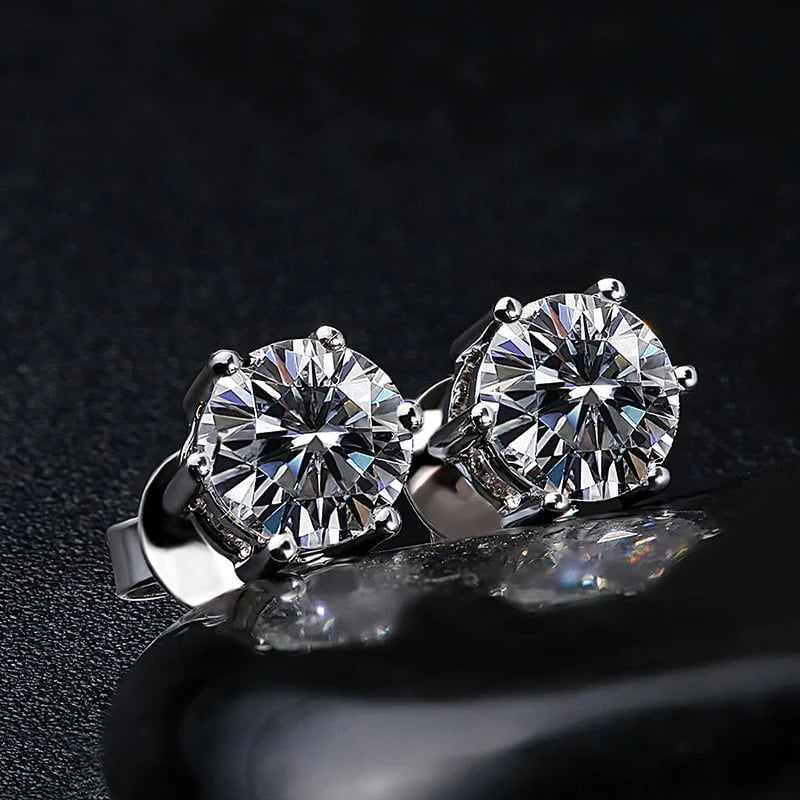
Fascinating and exquisite, gemstones have fascinated people since ancient times. These precious accessories are highly sought after for their different colours, shapes and brilliance.
Although most types of gemstone jewellery are more durable than they appear, they still require great care to maintain their quality. Here is a guide on how to care for gemstones so that they remain beautiful for many years to come.
Wearing Gemstone Jewellery
It is recommended that certain gemstone jewellery be removed during certain daily activities to avoid damage to.
- Physical activities such as sports and exercise can lead to a relaxed environment. Gemstones can also be broken by heavy blows or damaged by prolonged exposure to perspiration.
- Showering, cleaning and swimming can expose jewellery to harsh chemicals and/or hot water. It is therefore best to remove your jewellery before performing these tasks. Contact with hairspray and perfume should also be avoided.
- Removing your jewellery while gardening, baking or applying any make-up will help to reduce tarnish build-up.
- Do not wear your jewellery on the beach. Prolonged and repeated exposure to direct sunlight can cause the colour of some heat-treated gemstones (such as citrine) to fade.
Storing Gemstone Jewellery
To preserve the beauty of your gemstones, you must store your jewellery well.
- Gemstone jewellery should always be stored in a padded box or soft cloth bag to avoid scratches (especially important when travelling).
- Gems set in silver or sterling silver need to be stored in a tarnish-proof bag and kept out of direct sunlight when stored.
- Do not store different types of gemstones together. Gemstones with a higher Mohs hardness may scratch if they come into contact with a softer gemstone.
Cleaning Your Gemstone
Cleaning your gemstones regularly will ensure that they retain their lustre and stay looking new. Here are the most common ways to clean gemstone jewellery.- When removing your gemstone jewellery after use, make sure you wipe away any traces of make-up. A soft cotton cloth is the best choice for wiping this type of jewellery.
- For everyday cleaning, gently wipe your jewellery with a soft, lint-free cloth. A soft brush can be used to gently remove any dirt or grime from the environment.
- The recommended method for more thorough cleaning depends on the type of gemstone and metal. Warm water and a mild dishwashing detergent are usually the safest options. Avoid using hot water or scrubbing your jewellery with harsh or abrasive chemicals. After cleaning, rinse and pat dry.
- Loose gemstones can be soaked in warm soapy water and then gently cleaned with a soft toothbrush. They can then be allowed to air dry, out of direct sunlight or dried with a soft cloth.
- For stained and opaque gemstones, the safest cleaning method is warm water and a mild soap solution. Please note that lemon juice or vinegar should never be used to clean these gemstones, as the acidity can damage them.
- It is best to have your jewellery professionally cleaned at least once a year - or twice if you wear it regularly. Having your jewellery professionally cleaned and polished will also allow your jeweller to check for loose settings and other signs of wear and tear.
- Use the ultrasonic cleaner for stubborn dirt.
Please note, however, that ultrasonic cleaning is not suitable for all types of gemstone jewellery. Ultrasound emits high frequency vibrations and can loosen dirt. Although convenient, it should be used with caution. The vibrations of the machine can damage porous, fragile and brittle gemstones.
Generally, the use of ultrasonic cleaning for gems falls into the following categories:
- Avoid - emeralds, peridots, topazes, onyxes, pearls.
- Okay if gems are not fractured, filled, or dyed – diamond, ruby, sapphire, amethyst, citrine, garnet.
Okay – black diamond.
With simple care and attention to the nature of your gemstone, its beauty will last a lifetime or more.


Share:
What is Moissanite?
Jewellery Care Guide